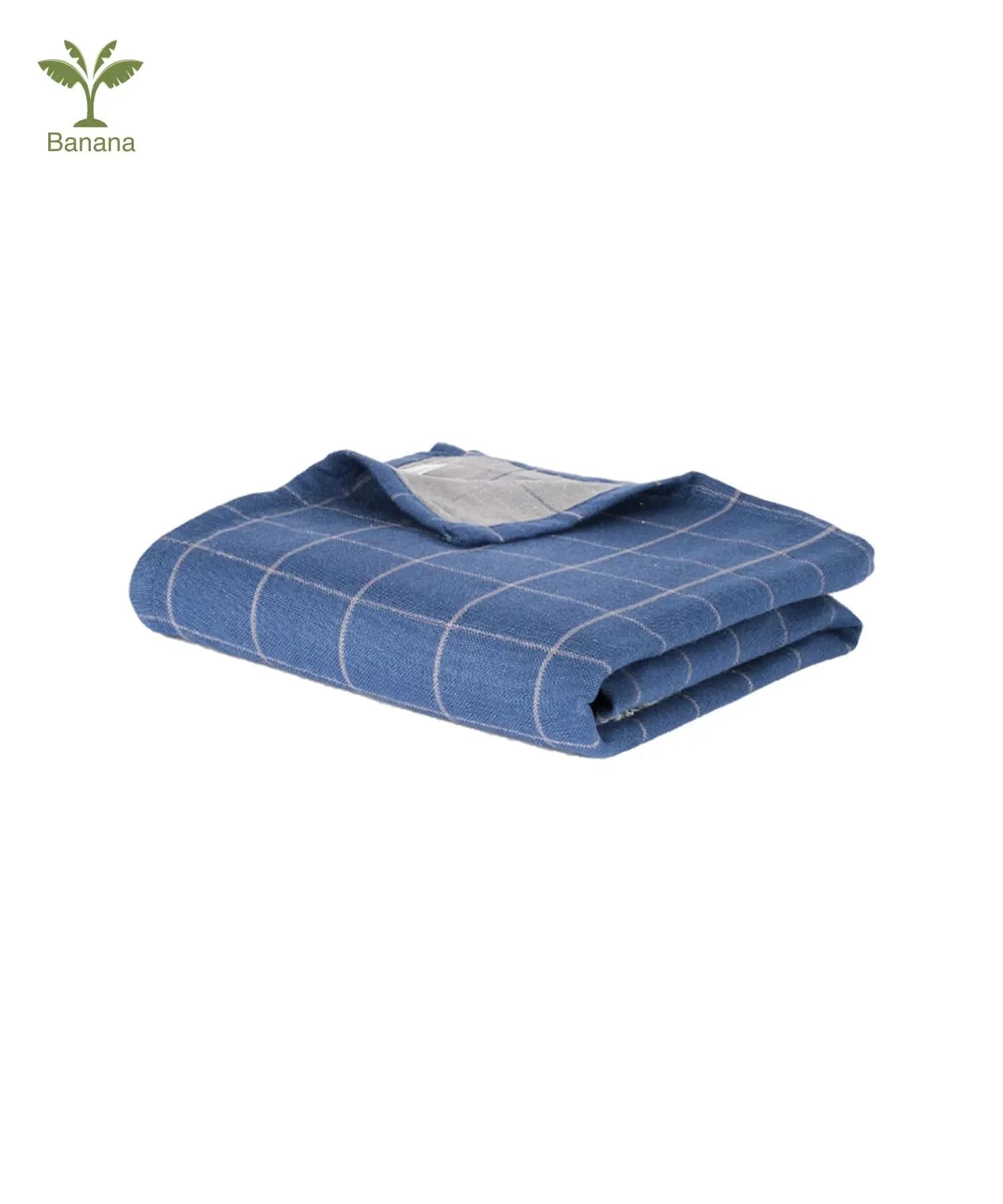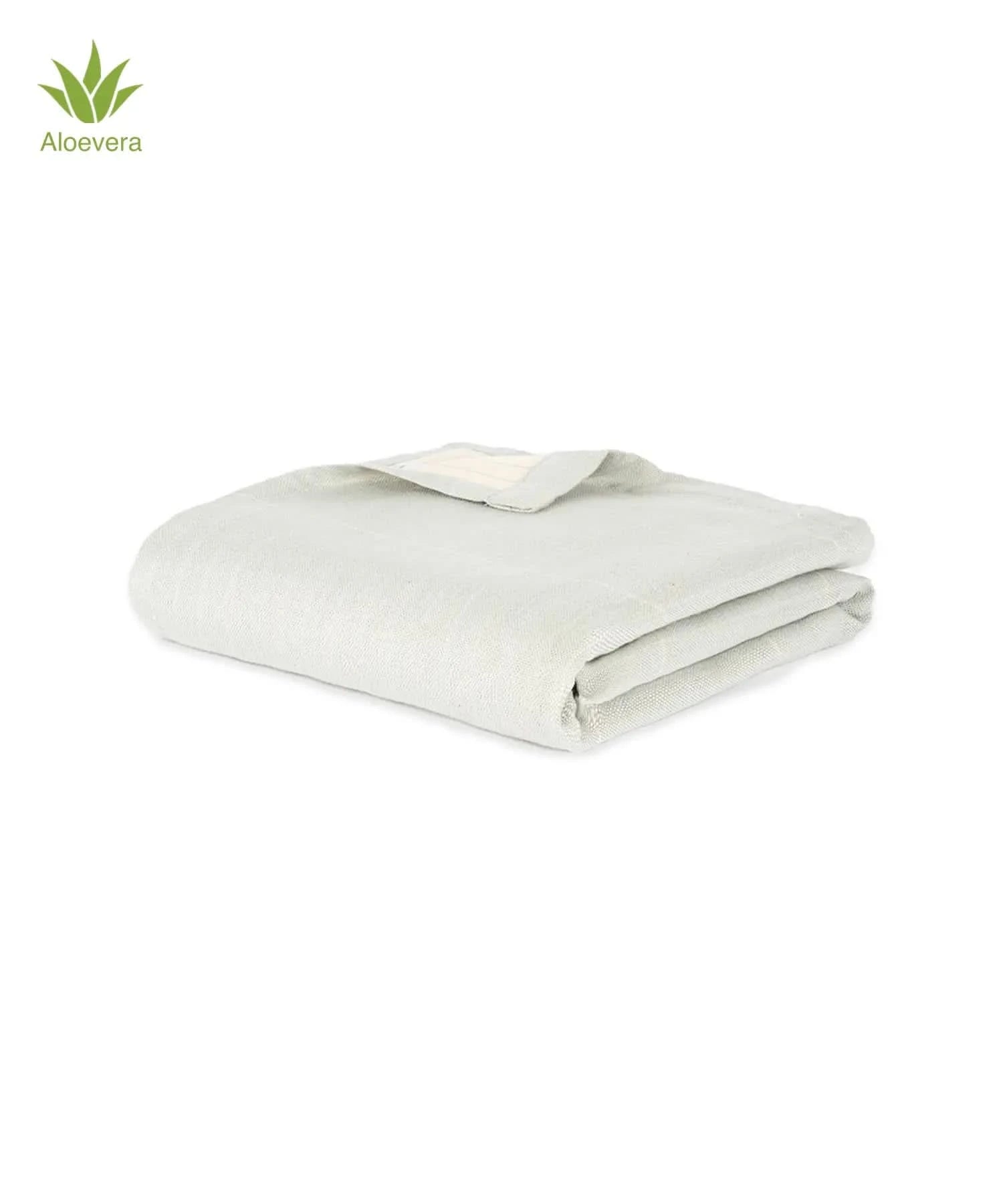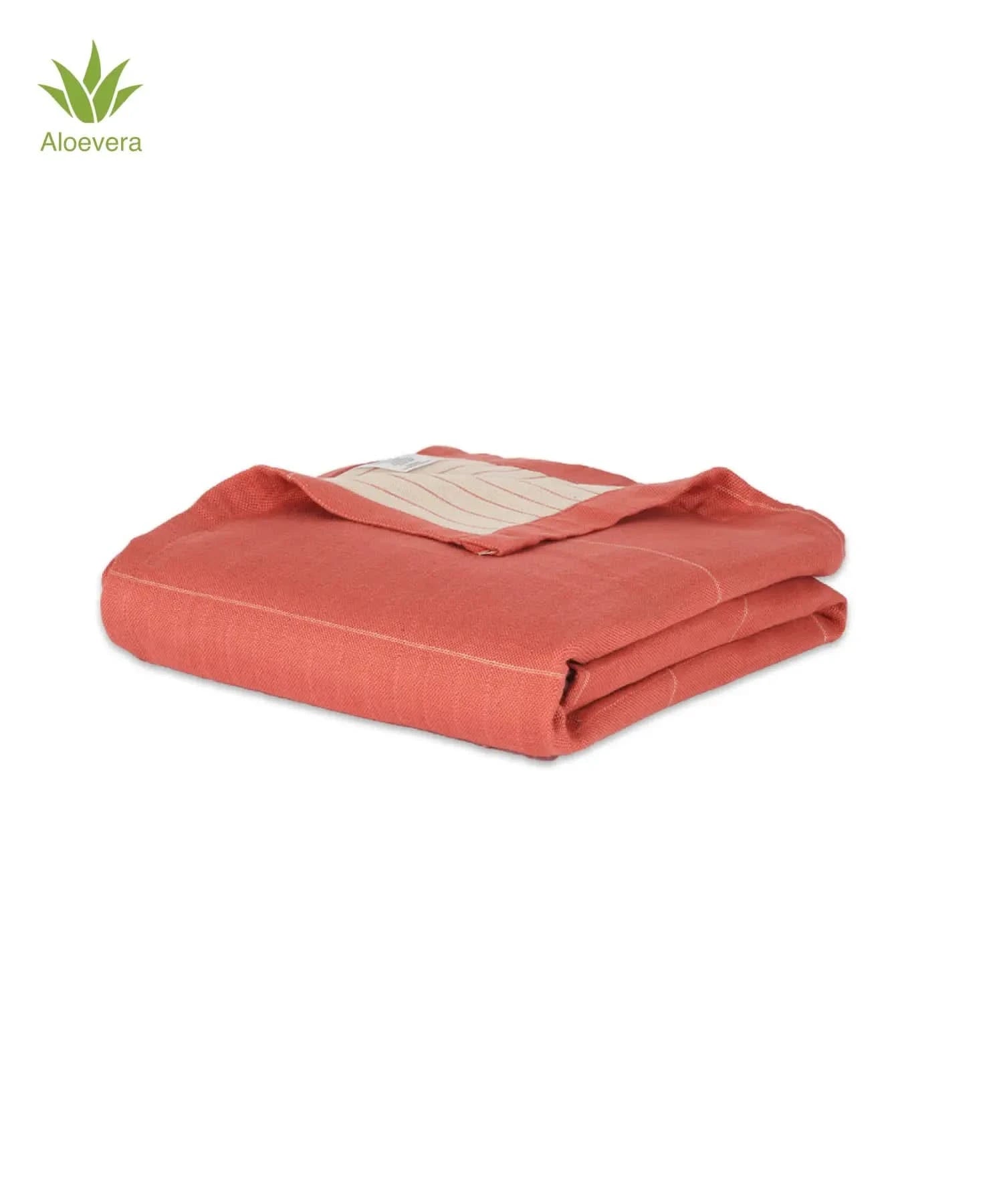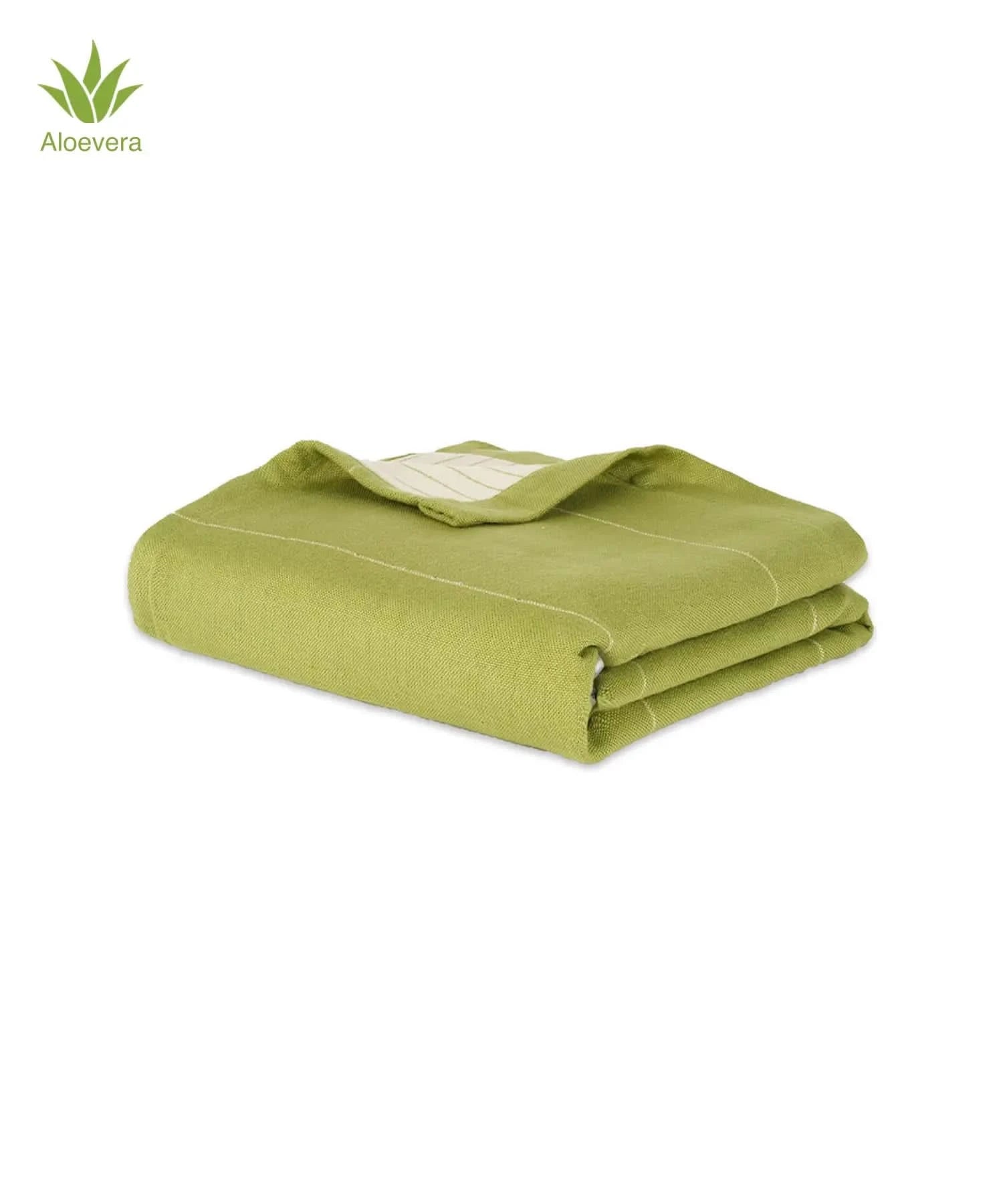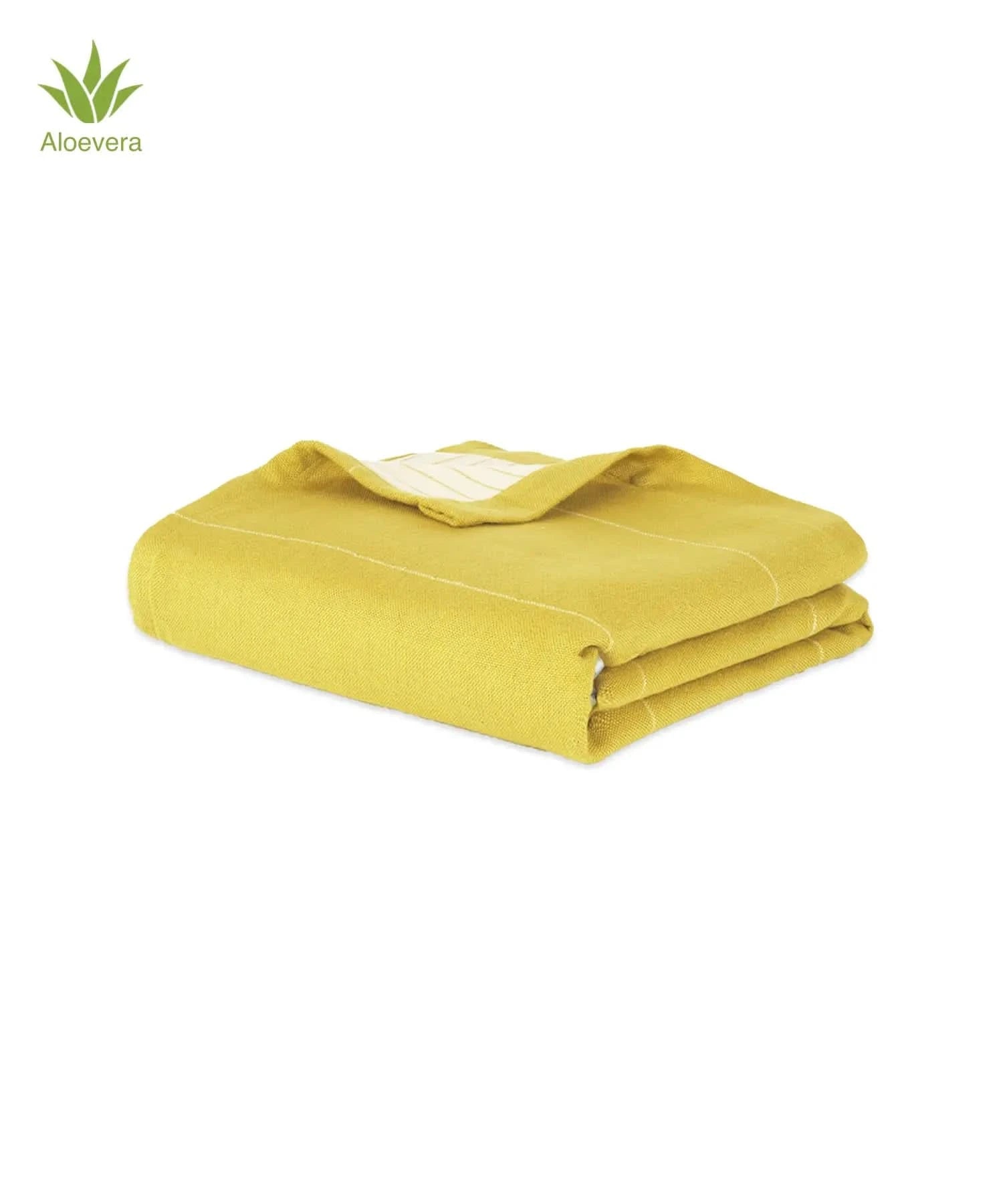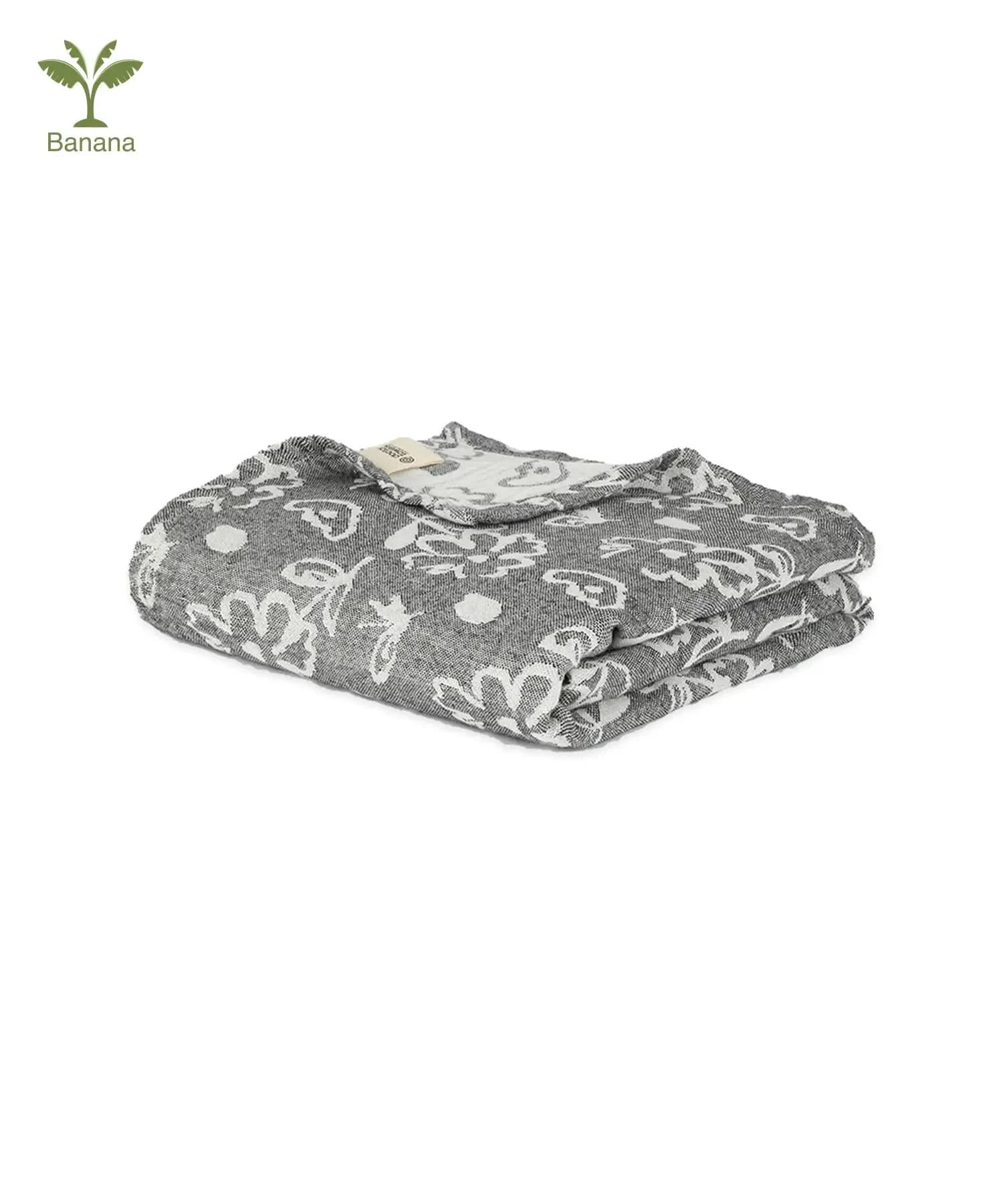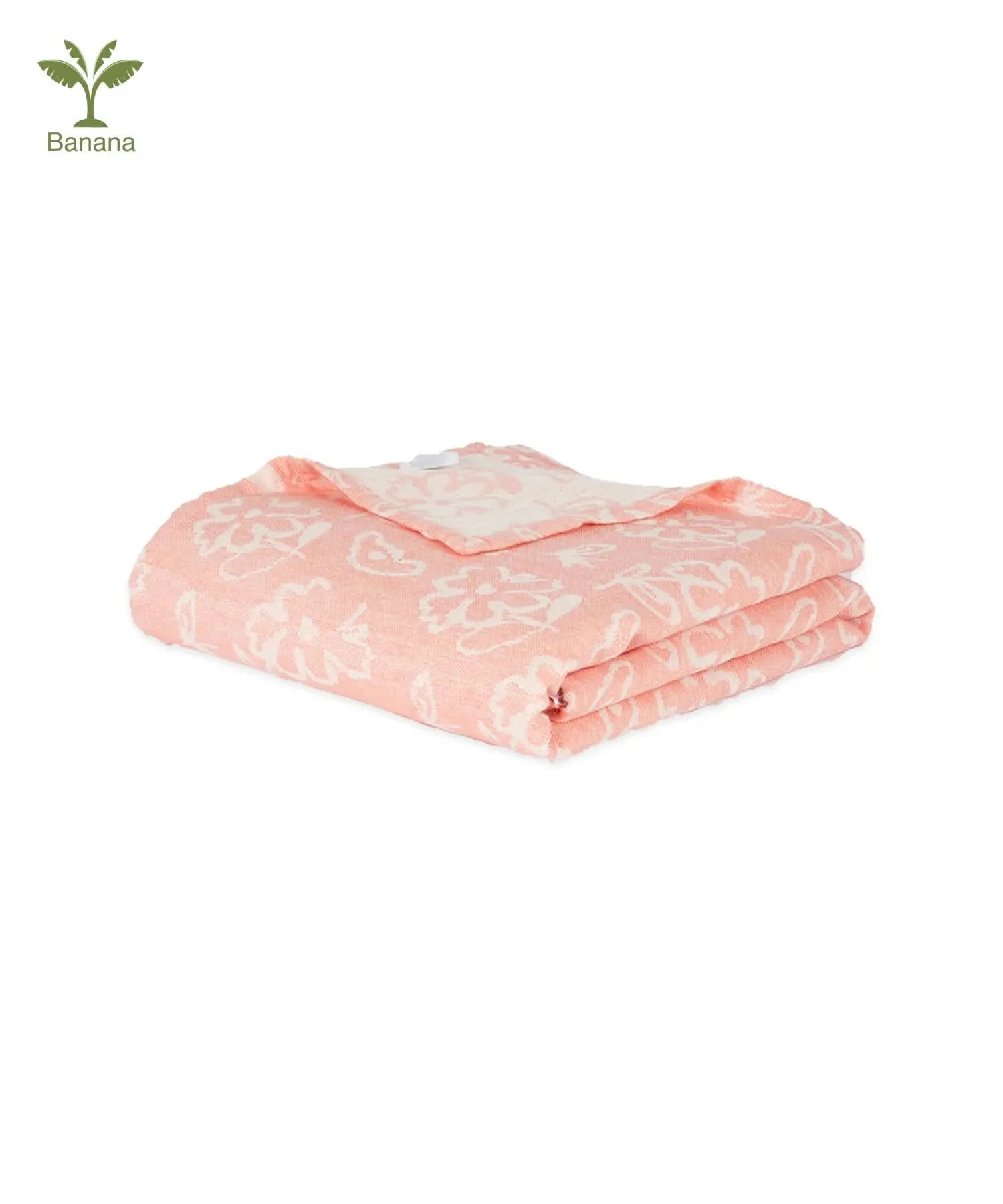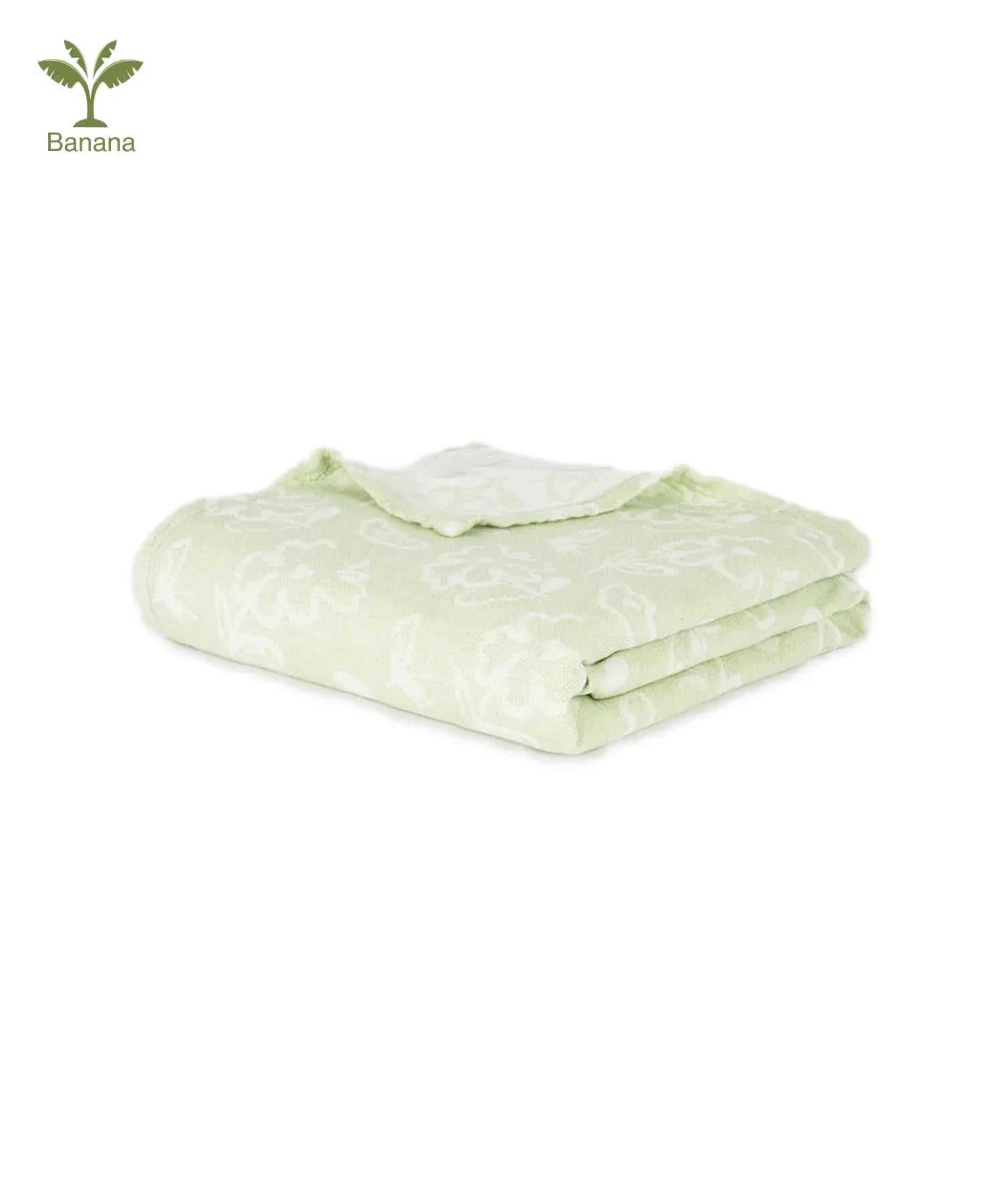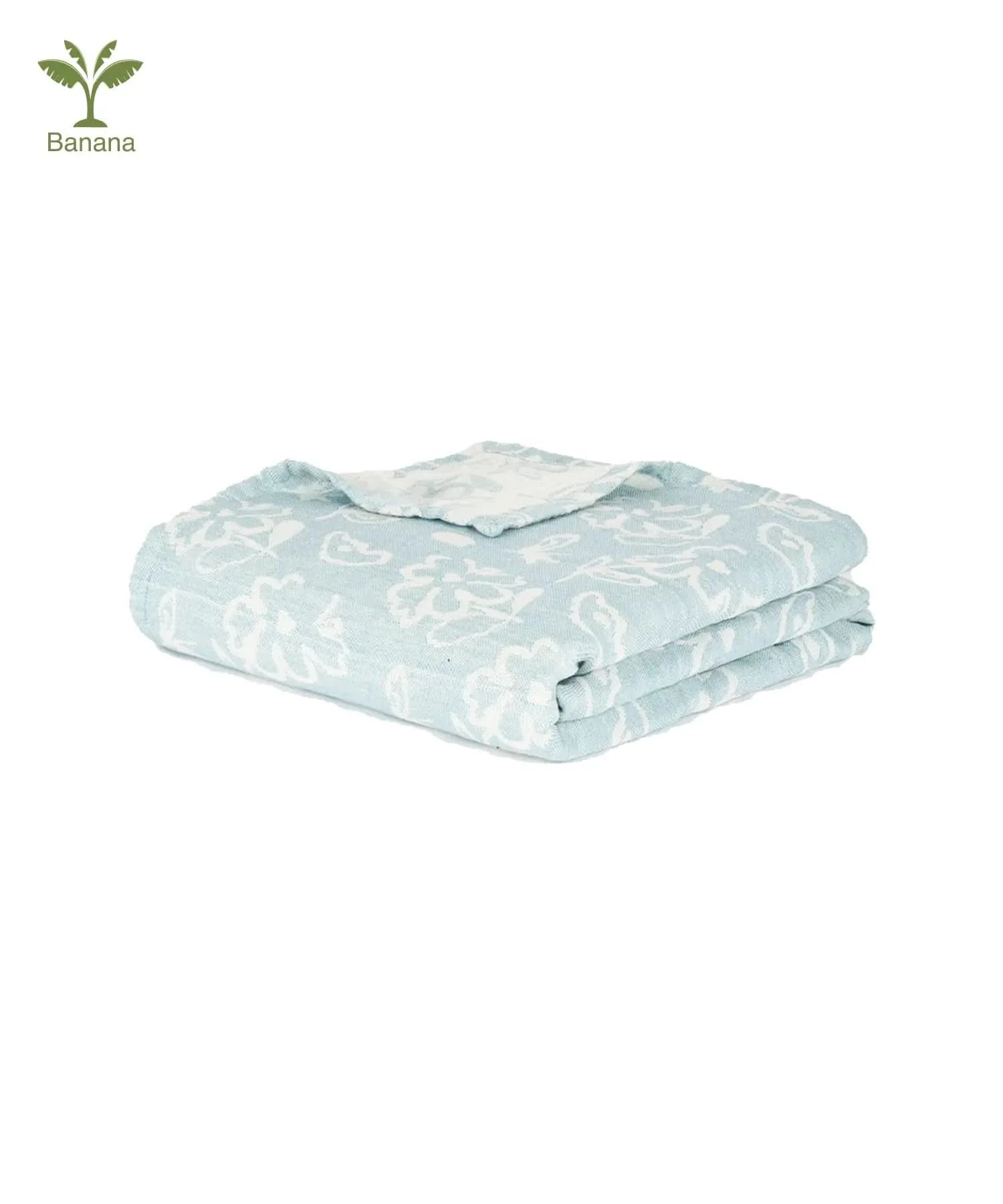
Why Your Winter Towel Choice Matters for Sensitive Skin in North India
14 October 2025
Share
Why Your Winter Towel Choice Matters for Sensitive Skin in North India
Section 1: Context — The Problem and the Hook
Winter in North India is more than just a change in temperature; it’s a shift in the way our skin feels, behaves, and reacts to the environment. While cool breezes and lower humidity offer respite from summer’s intensity, they also usher in a host of skin challenges—especially for those with sensitive skin. Dryness, itchiness, redness, and flaking become everyday annoyances, and the simple act of toweling off after a shower can exacerbate these problems if your towel isn’t chosen with care.
The urgency is clear: many North Indians with sensitive skin experience discomfort not just from the environment, but from everyday products that seem harmless—like towels. Most people underestimate just how much a towel’s material, texture, and absorbency matter during winter, especially for sensitive skin. Making the right choice can mean the difference between skin that feels soothed and nurtured, and skin that feels constantly irritated.
So why does your winter towel truly matter? And what should you be looking for when shopping for towels in North India’s chilly months? Let’s unravel the science, the data, and the solutions that can help you care for your sensitive skin—starting with the humble towel[3][5].
Section 2: Insight — The Scientific Mechanism Behind Towels and Sensitive Skin
To understand why towel choice matters so much, we need to look closely at how winter affects sensitive skin, and how towels interact with those changes.
Sensitive skin is typically characterized by a reduced barrier function, meaning the outermost layer of skin (the stratum corneum) is less effective at keeping irritants out and moisture in. During winter, lower humidity and cold air strip natural oils from the skin, weakening this barrier even further. This leads to increased transepidermal water loss (TEWL)—the process by which water evaporates from the skin—resulting in dryness, flakiness, and a heightened risk of irritation[5].
- Every time you use a towel, you create friction against your skin. For those with sensitive skin, rough fibers can micro
- abraid the already fragile surface, aggravating redness and inflaming existing conditions like eczema, dermatitis, or acne. Towels made from harsh synthetic fibers or low
- quality cotton can also trap bacteria and retain moisture, increasing the risk of infections and fungal growth—problems that are worsened by winter’s dampness in North Indian bathrooms.
- Materials matter. Scientific studies have shown that soft, hypoallergenic fabrics—such as bamboo, organic cotton, and high
- quality microfiber—are less likely to cause irritation, are naturally antibacterial, and wick moisture away efficiently without excessive rubbing[4][7]. Bamboo towels, in particular, have become renowned for their ultra
- soft texture, high absorbency, and natural resistance to bacteria—making them an ideal choice for sensitive skin in winter[3][5].
Section 3: Proof — Credible Data and Research Findings
Let’s examine what research and expert consensus say about towels, sensitive skin, and winter care.
A 2020 study published in the Journal of Clinical and Aesthetic Dermatology found that individuals with sensitive skin benefited significantly from using towels made of smooth, natural fibers, such as bamboo and organic cotton. These materials were associated with lower rates of skin irritation compared to standard cotton or synthetic towels, especially in dry, cold conditions[5].
- Another peer
- reviewed study in the International Journal of Dermatology highlighted the importance of avoiding harsh textures and chemicals in personal care textiles. The researchers concluded that hypoallergenic, soft towels reduced friction and minimized microtrauma to the skin barrier, especially in climates with low humidity—like North Indian winters[7].
Key findings include:
- Bamboo towels are three times more absorbent than cotton due to their unique porous cross
- section, allowing for efficient moisture removal without harsh rubbing[2][3].
Bamboo fibers possess natural antibacterial properties, helping to prevent odors and the growth of microbes, which is particularly important for sensitive skin prone to infection[4][7].
Organic cotton towels, grown without pesticides or harsh chemicals, are less likely to trigger allergic reactions or contact dermatitis, making them a safe choice for sensitive users[5].
Microfiber towels with smooth, fine threads glide gently over the skin, reducing friction and abrasion compared to rougher materials[5].
A report by the Indian Dermatology Online Journal emphasized that regular towel use—especially with suboptimal materials—can worsen skin conditions like eczema and acne during winter. The authors recommended towels made from hypoallergenic, soft fibers to minimize irritation[5].
Section 4: Brand — How Doctor Towels Solves the Problem
Doctor Towels understands the unique needs of sensitive skin, especially in North Indian winters. Our approach centers on science, quality, and care, offering products that address the specific challenges faced by sensitive skin users.
Here’s how Doctor Towels stands out:
- We prioritize the use of bamboo fibers in our towel range. Bamboo is naturally hypoallergenic, ultra
- soft, and three times more absorbent than regular cotton, ensuring that your skin is dried gently and thoroughly without excessive friction[3].
Doctor Towels are designed with a plush, velvety texture that caresses the skin rather than rubs it raw. This is especially beneficial during winter, when your skin is already compromised by cold and dry air[3][5].
- Our towels are crafted to be antibacterial and odor
- resistant, thanks to the natural properties of bamboo. This helps prevent the growth of microbes, a key concern in damp North Indian bathrooms during winter[4][7].
We avoid harsh dyes and chemicals in our production process, ensuring that every towel is safe for even the most sensitive skin. Doctor Towels are tested for skin compatibility, and our bamboo range is particularly recommended for those with allergies, eczema, or dermatitis[3].
Doctor Towels focuses on sustainability. Bamboo is a renewable resource, grown without pesticides, making our towels not only gentle on your skin but also kind to the environment[3][7].
- Our towels come in a variety of sizes and colors, designed to fit seamlessly into your winter routine—whether for the bath, face, gym, or travel. They are easy to care for, quick
- drying, and durable, ensuring they remain a staple in your skincare regimen throughout the season[3].
Section 5: Behavior — What Users Can Do (Actionable Tips)
Choosing the right towel is crucial, but your routine matters just as much. Here are actionable steps you can take to protect sensitive skin during winter in North India:
- Opt for towels made from bamboo, organic cotton, or high
- quality microfiber. Check labels carefully and avoid towels with harsh dyes or synthetic fillers[5][7].
- Wash towels before first use to remove any residual manufacturing chemicals. Use gentle, fragrance
- free detergents to avoid further irritating sensitive skin[5].
- Replace towels every 2–3 days, especially if you have acne
- prone or extremely sensitive skin. Damp towels can harbor bacteria and fungi, increasing the risk of infection[5][7].
Pat your skin gently—don’t rub. Use the towel to blot moisture, minimizing friction and the potential for microtrauma[5].
- Avoid sharing towels with others. This reduces the risk of cross
- contamination and infection, which is especially important for sensitive skin in winter[7].
- Store towels in a dry, well
- ventilated space. Damp bathrooms can encourage microbial growth, so make sure your towels are hung up and allowed to dry fully between uses[7].
Consider using separate towels for face and body. The skin on your face is typically more sensitive, and using a dedicated towel can help prevent the transfer of bacteria and irritation[5][6].
Section 6: Trust — FAQ Addressing Common Concerns
- Q: Is bamboo really better for sensitive skin than cotton? A: Yes, bamboo fibers are naturally smoother, more absorbent, and hypoallergenic compared to standard cotton. Clinical studies and dermatologists recommend bamboo towels for sensitive and allergy
- prone skin, especially in dry winter climates[3][4][7].
Q: Can towels cause or worsen skin problems like eczema or acne? A: Absolutely. Using rough, synthetic, or dirty towels can aggravate conditions like eczema, dermatitis, and acne by increasing friction, trapping bacteria, and irritating the skin barrier. Soft, hypoallergenic towels minimize these risks, especially when changed frequently and kept clean[5][7].
Q: How often should I wash my towel if I have sensitive skin? A: Ideally, every 2–3 days. More frequent washing may be necessary if you are prone to acne or skin infections, or if your bathroom is damp[5][7].
- Q: Are colored towels unsafe for sensitive skin? A: Some colored towels use harsh chemical dyes that can cause allergic reactions or irritation. Doctor Towels uses safe, skin
- friendly dyes and avoids harmful chemicals to ensure our towels are suitable for sensitive skin[3].
- Q: What size towel should I use for my face? A: For facial use, a towel of around 30x30 cm is ideal. Smaller towels are easier to handle and reduce the risk of cross
- contamination between face and body[6].
Q: Can I use Doctor Towels for babies or children with sensitive skin? A: Yes. Doctor Towels are crafted from hypoallergenic bamboo fibers and tested for safety, making them suitable for all ages, including babies and toddlers[3].
Section 7: Connectivity — Related Topics and Considerations
The right towel is just one part of a holistic winter skincare routine for sensitive skin in North India. To maximize protection and comfort, consider these related topics:
- Moisturizers: Choose fragrance
- free, ceramide
- rich moisturizers to reinforce your skin’s natural barrier after toweling off. Apply immediately after patting dry to lock in moisture[5].
Bathing habits: Use lukewarm water instead of hot, as high temperatures can strip oils from sensitive skin and worsen dryness[5].
- Gentle cleansers: Opt for mild, sulfate
- free cleansers to avoid irritating the skin during winter[5].
Humidity control: Consider using a humidifier to maintain indoor moisture levels, reducing the dryness that exacerbates sensitive skin issues[5].
Clothing: Wear soft, breathable fabrics like organic cotton or bamboo, both for towels and clothing, to minimize skin irritation[5][7].
- Diet and hydration: Drink plenty of water and eat foods rich in omega
- 3 fatty acids to support skin health from the inside out[5].
Environmental factors: Be mindful of pollution and allergens, which can increase skin sensitivity and reactivity in North India during winter[5].
Choosing Doctor Towels is an investment in your skin’s health, comfort, and resilience—especially in the challenging winter months. By understanding the science, leveraging research, and taking practical steps, you can transform your winter routine and give your sensitive skin the gentle care it truly deserves.
- In summary, the towel you use is more than a bathroom accessory. It’s an essential part of your daily skincare arsenal, especially for sensitive skin in North India’s winter. With the right knowledge, the right product, and the right habits, you can ensure your skin stays comfortable, hydrated, and irritation
- free all season long.
Prev post

How to Keep Your Skin Hydrated and Protected During North Indian Winters
Updated on 14 October 2025
Next post

How Doctor Towels' Skin Shield Technology Supports Mature Skin: A Demo-Specific Insight
Updated on 13 October 2025





